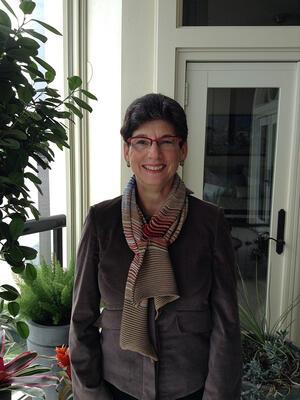Madalyn Schenk
Madalyn Schenk fought for significant political change both in Louisiana and in the nation as a whole. Schenk orchestrated the first pro-choice rally in Louisiana and was Louisiana contact for the Million Mom March in 2000, a national mobilization for gun control. She held leadership roles in six major Democratic campaigns, including the elections of President Bill Clinton and Senator Mary Landrieu. As an education reformer, Madalyn helped initiate the National Council of Jewish Women's Home Instruction Program for Pre-School Youngsters, helping parents with limited education prepare their children for school. She also chaired the Louisiana Serve Commission, evaluating AmeriCorps competitive grants for Louisiana. After Hurricane Katrina, Schenk served on the fundraising boards of two exemplary public schools, and in 2010 she was appointed to the board of directors of the New Orleans Center for the Creative Arts. She chaired the public policy committee of United Way's Women's Leadership Initiative and advocated for quality rating systems to improve childcare and early childhood education. She also advocated for changes in the law protecting survivors of domestic violence and sexual assault.
Madalyn describes her family background growing up in an insular Jewish community in Chicago with both sets of grandparents living in the same building. She came to New Orleans from Chicago with her husband before the World's Fair of 1984. At the time of Hurricane Katrina, Madelyn was President of the Board for the New Orleans Center for the Creative Arts. The school scattered its faculty around the state to teach in various communities in exile. In the spring of 2006, the board brought their students to Loyola University for a six-week mini-session so students would get behind in their studies. Madalyn evacuated to her second home in Telluride. She is focused on rebuilding the city through leadership in civic organizations and fundraising efforts. Finally, Madalyn reflects on her involvement in Jewish Organizations and Jewish identity, which she realizes through activism rather than study or attending temple. Other topics include fundraising, the school system, New Orleans politics, the New Orleans Center for Creative Arts, and religion.



